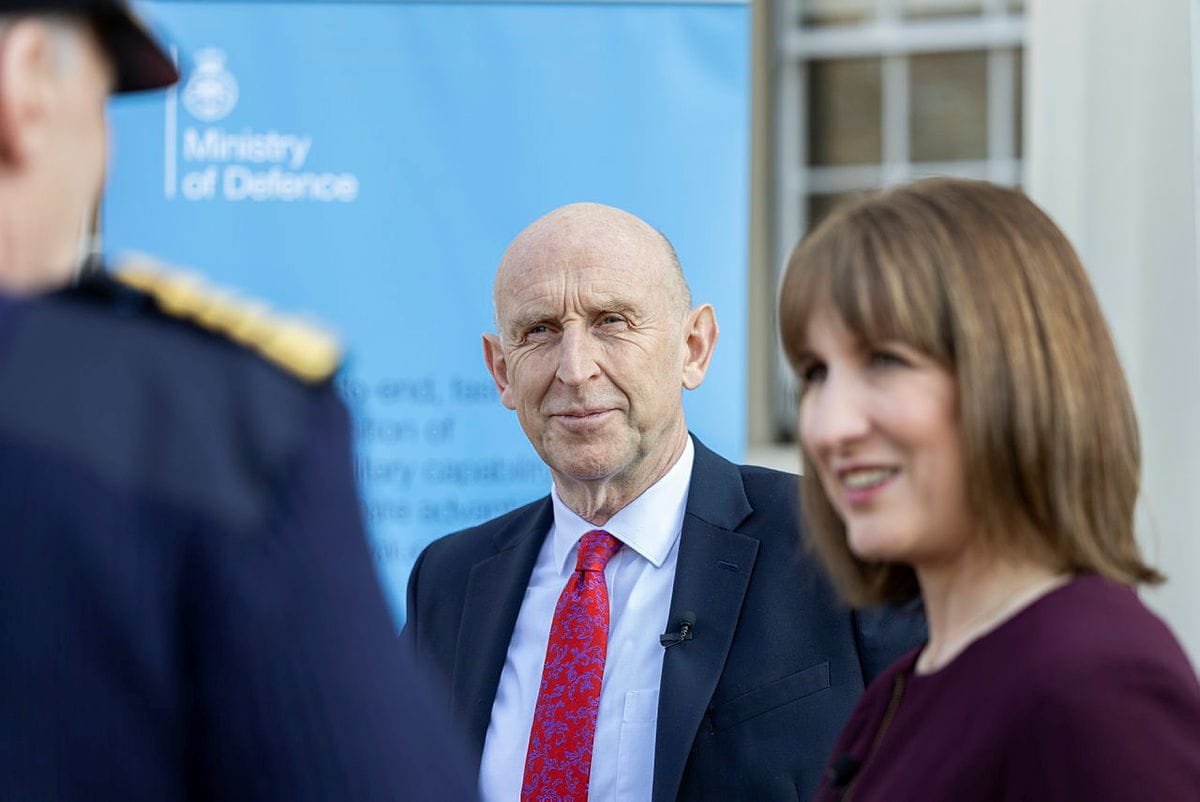
The UK’s Defence Secretary has committed to spend “10% of the MOD equipment budget on novel technologies” following a landmark meeting with investors from the venture capital community in London this week.
(In 2024, estimated MOD expenditure on equipment was £25.2 billion.)
Defence Secretary John Healey said: “I am determined to bring together investors, innovators and industry in a new partnership that drives British jobs and growth. We want to mobilise private investors to take a fresh look at defence [amid a] record long-term uplift in defence spending.”
The discussion was convened by Khaled Helioui, a partner at early stage investment firm Plural and hosted over breakfast at Plural’s London offices, alongside former civil servant Grace Cassy of Ten Eleven Ventures, who has been contributing to the UK’s Strategic Defence Review.
The meeting comes after Prime Minister Sir Keir Starmer on 16 July 2024, launched a Strategic Defence Review (SDR) to ensure the UK “is both secure at home and strong abroad – now and for the years to come.”
The SDR, unlike previous government-led reports, is being delivered independently by Lord Robertson, a former Secretary General of NATO.
He is being supported by two other key external reviewers: Dr Fiona Hill, who was deputy assistant to the US President and senior director for European and Russian affairs on the US National Security Council from 2017 to 2019, and General Sir Richard Barrons, a former Commander Joint Forces Command and former Deputy Chief of the Defence Staff.
The SDR is expected to be published by the summer of 2025.
In February 2025, the Prime Minister also announced a new national security strategy, to be published before the NATO summit in June 2025.
VC interest in the security space has boomed as spending plans grow across the UK and Europe. (In March European Commission President Ursula von der Leyen announced an €800 billion plan to boost the EU’s defenses. The proposal creates a dedicated instrument for Security Action for Europe or “SAFE” that includes “competitively priced and attractively structured long-maturity loans” for EU states to allocate to defence.
Defence Secretary Healey emphasised that “defence is an ethical investment” in preventing the “huge human and economic costs caused by conflicts such as Ukraine as some funds look to renegotiated Limited Partner Agreements to better enable investment into defence.”
The UK’s Ministry of Defence has been working with the Defence Suppliers Forum, which covers about 80 companies directly and the whole supply chain through trade associations, to ensure that its suppliers are monitoring supply chain fragility. It has also worked with its prime contractors to get visibility of at least four levels down in its supply chain, a March 2024 Public Accounts Committee report emphasised.
“Key lessons from the war in Ukraine,” PAC wrote, “include the need for the Armed Forces to invest in weapon stockpiles and ensure resilience and agility in sustaining military capabilities. The MoD has earmarked £5 billion over the decade to 2032–33 to develop this, half of which is additional funding provided by HM Treasury in 2023–24 and 2024–25.
“The MoD has started using the new money from HM Treasury on both enhancing production capacity and working down through the supply chain to secure the supply of essential commodities, such as chemicals.”
Sign up for Defence Nexus
National security and technology interviews, insight, and intelligence for decision makers across NATO's five domains.
No spam. Unsubscribe anytime.

